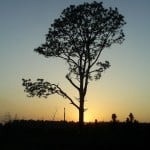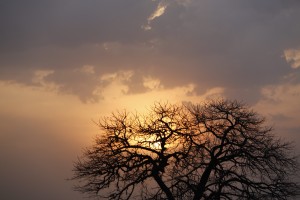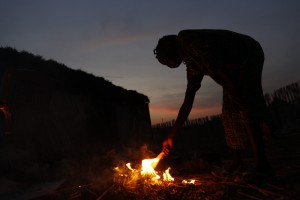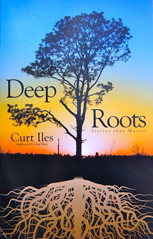Give me land, lots of land
“They fighting over their burying ground.”
– “This Land” John Lee Hooker
It’s a story we hear variations on: It’s concerns land disputes in the aftermath of South Sudan’s long civil wars.* The following comes from the article, “Winning the War, but Losing The Peace.**
A Madi man returning from Uganda goes to the land he farmed before being displaced. He finds a Dinka living in his house. He demands that the Dinka return his house and land.
In response, the Dinka points to a date inscribed above the doorway. “On this date, I liberated this house from the Arabs. Where were you?”
Land has always been a source of contention throughout history. You need look no further than Uncle Abraham and Lot to see the tension.
Like Abraham and Lot, many South Sudanese tribes are pastoralists and move their livestock according to availability of water and grass.
This creates more opportunity for conflict as the Sahel (the area between the Sahara and Africa’s green grasslands) changes.
An additional factor in intertribal conflicts is the never-ending problem of cattle raiding. One tribe/village/clan will steal in by night and take the most precious possession of folks: their livestock.
Livestock are the source of material wealth, pride, bride price for marriage, and insurance against future ills.
What we’re seeing now (early 2014) is that many South Sudanese, whether Dinka Bor or Jikany Nuer had been forced to flee with the proverbial shirt on their backs.
They left behind homes that have been burned.
They know their cattle will be gone when, or if, they return.
They’ve lost their source of pride and security.
They are hurting and unsure of their future.
This is sad but there is an opportunity. They are searching for meaning.
I firmly believe the Savior Jesus offers firm hope.
His words, “Come unto me all that are heavy-laden . . . and I will give you rest” are as true and strong today as when an ex-tax collector named Matthew wrote them down verbatim.
He offers rest and purpose for the cattle-less African
As well as the discontented materialistic Westerner.
I can attest that He is faithful.
* * *
Whether Dinka, Nuer, Murle, Shilluk, or Madi, these folks have been crushed by life and when this happens, people are open to the Good News of Jesus.
Many of the strongest pastors in South Sudan first met Christ in a refugee camp during the 1990’s. These camps in Kenya, Ethiopia, Uganda, and even The Sudan were fertile ground for people being
* * *

Most Americans from the Deep South understand about land rights and grazing and the conflicts it can bring.
Especially those of us from the SW Louisiana piney woods. We are the products of what was called “No Man’s Land” a strip of land separating Spanish Texas from French Louisiana.
Our area had “open range” until a generation ago. This tradition of allowing livestock to roam freely for grass was nearly considered sacrosanct.
It also contributed to our area’s prevalence as the Woods Arson capital of Louisiana. Those same old-timers who ran their livestock in the grasslands believed in their right to burn the woods late each winter.
Our emerging forestry economy collided with this tradition of open range.
Just like our Madi/Dinka land dispute, we understand about land disputes.
* * *
I’m asking you to intercede for the settlement of these land conflicts.
Historically, customary tribal courts settle these land disputes. A group of elders will sit under a mango tree, hear cases, and make consensus decisions.
It’s not a perfect system but works reasonably well.
*South Sudan succeeded from The Sudan in 2011 after two civil wars beginning in 1957 and ending with the peace agreement in 2005. Most of the population has only known war, displacement, and famine.
That is one of the challenges of shaping a new country: many citizens and leaders do not know how to handle peace.
** “Winning the War but losing the Peace” Rift Valley Institute
Both Sides Now
This method of meeting together to work out problems works well in our American culture also.
The following story is my favorite on this topic.
A story of two men—representing two families—who would not let a land line ruin their friendship.
It’s called The Friendship Lane and it’s from my book, “Deep Roots.”
To tell you about the Friendship Land, I must take you there.
So let’s walk together to an overgrown path in the woods. Most people will walk right by this narrow passageway and never notice it, but it always catches my attention because of what it means.
It is located just east of Dry Creek Camp’s property line. It is a ten-foot wide strip between two barbed wire fences. This path separates the land between the pioneer homesteads of Sereno Hanchey and Lionel Green. These two men, now dead for many years, were descendants of some of the earliest settlers of Dry Creek.
Mr. Rufus Hanchey, Sereno Hanchey’s son, took me to “The Friendship Lane” just before he died. As we stood there, he related the following story:
“Curt, at some point many years ago, there was a difference of opinion between the Hanchey and Green families over where the property line, running east and west. Each family claimed ownership on land that reached over into the other’s present field. Because no fence marked the dividing line, the actual land line was open to dispute.”
Mr. Rufus continued, “My dad and Lionel Green had always been good friends, and they valued their friendship more than any piece of land—and showed it by their subsequent actions. They met at the very spot we are now standing and came up with a solution for this problem. They declared the disputed ten-foot wide strip a “neutral zone.”
Each man would build a fence on his respective side of the strip. Together, they agreed on using the strip as a pathway on which neither family would claim ownership. Due to this arrangement, both families were satisfied and no further problem ever occurred.”
 Creekbank Stories Curt Iles, Storyteller
Creekbank Stories Curt Iles, Storyteller



